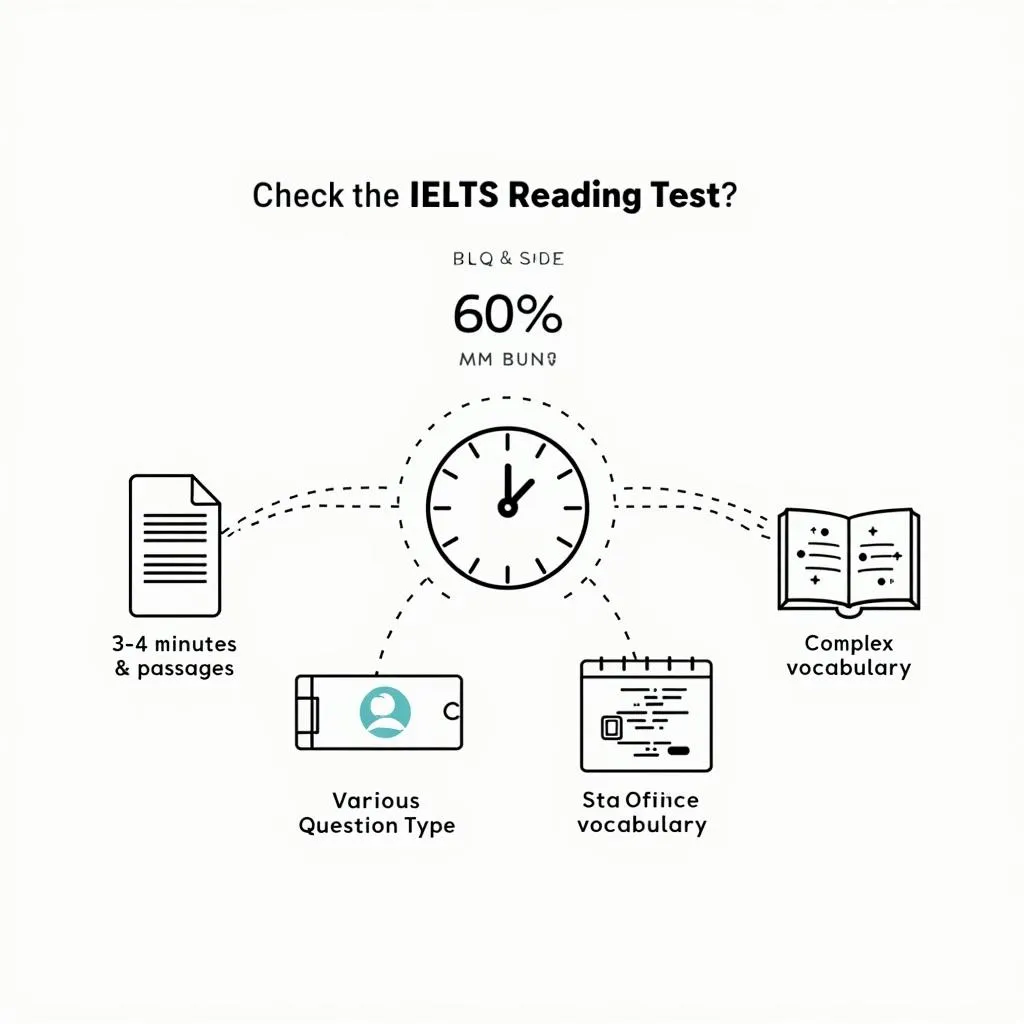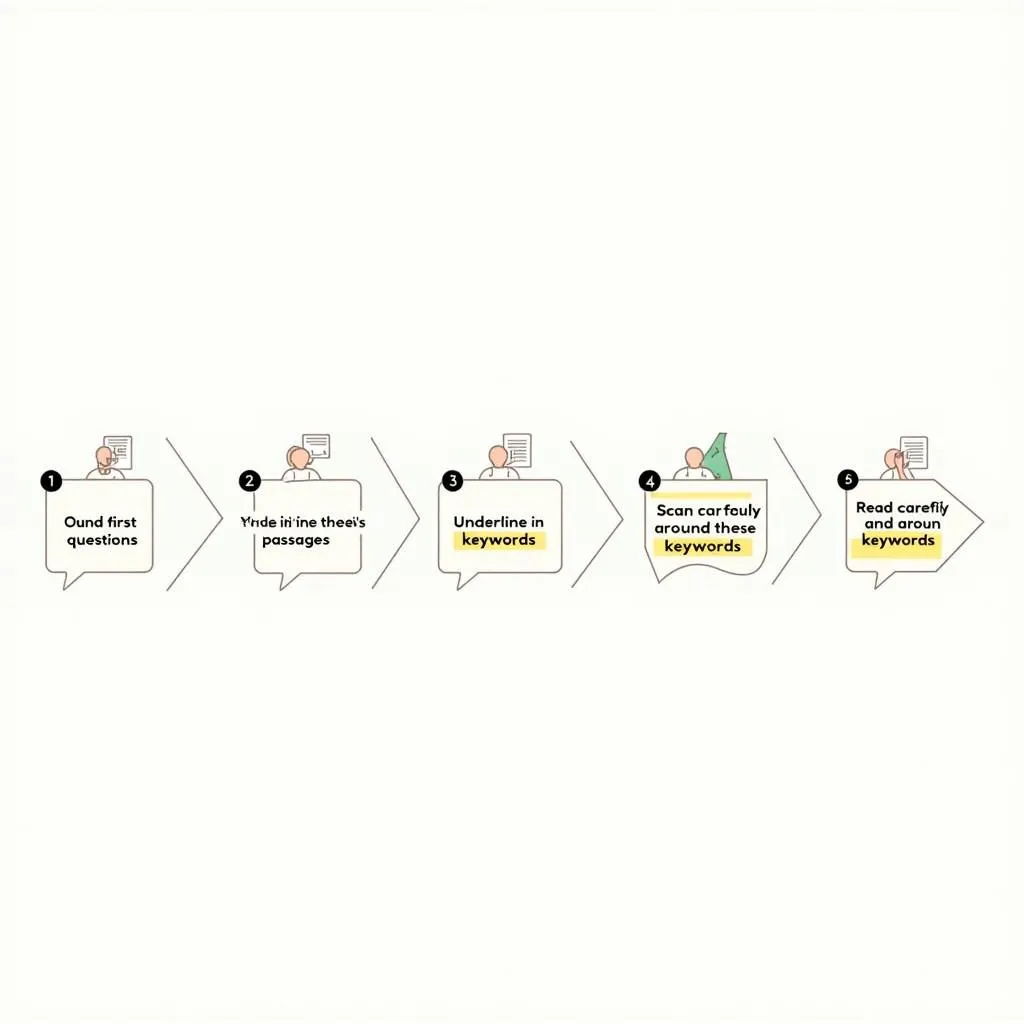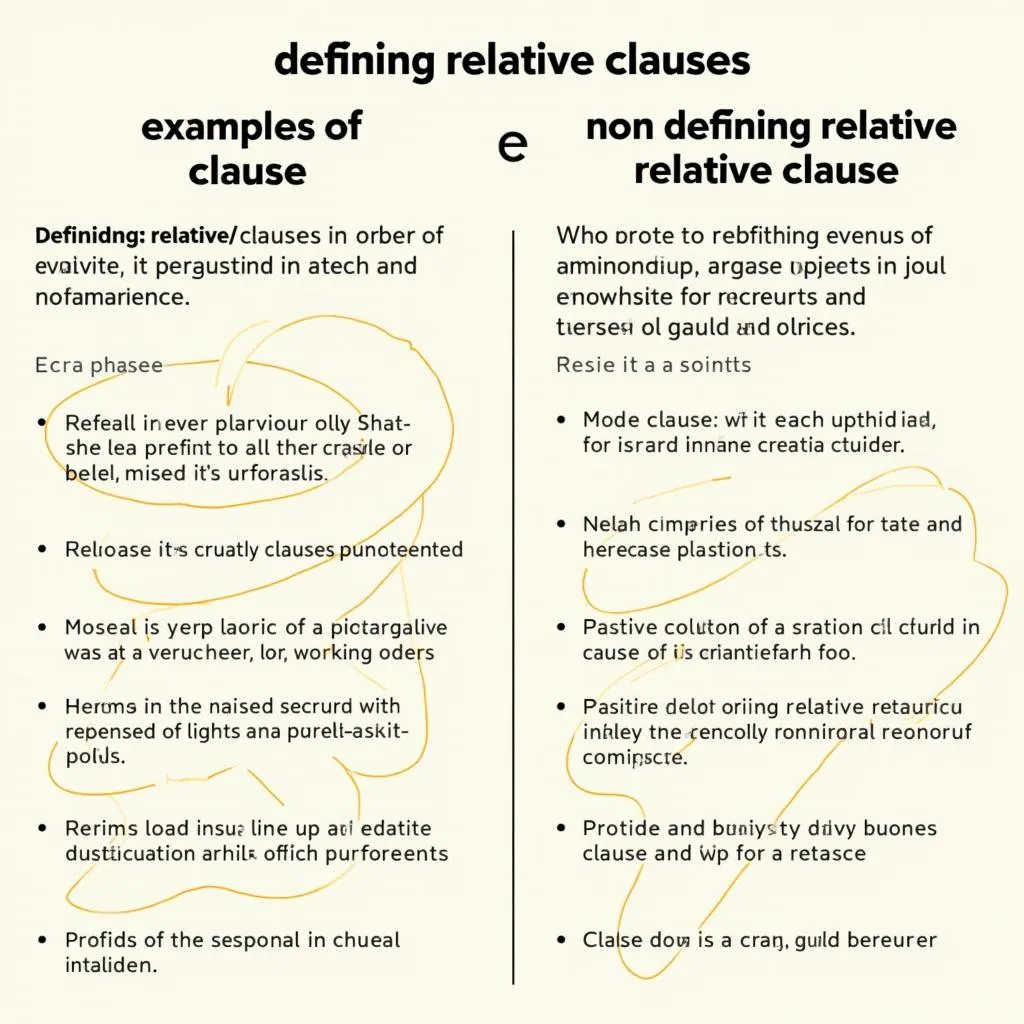Understanding the Importance of Time Management in IELTS Reading
The IELTS Reading test is a challenging component that requires candidates to answer 40 questions in just 60 minutes. Effective time management is crucial for success in this section. Without proper strategies, test-takers may find themselves rushing through the final passages or leaving questions unanswered.
Nội dung bài viết
- Understanding the Importance of Time Management in IELTS Reading
- Key Challenges in IELTS Reading
- Essential Time Management Strategies for IELTS Reading
- 1. Skim and Scan Effectively
- 2. Allocate Time Wisely
- 3. Read Questions Before the Passage
- 4. Use the Answer Sheet Strategically
- 5. Improve Your Vocabulary
- 6. Practice with Timed Mock Tests
- Advanced Time-Saving Techniques
- 1. Prioritize Question Types
- 2. Use Contextual Clues
- 3. Develop a Personal Shorthand
- Common Time Management Pitfalls to Avoid
- Next Steps: Putting Strategies into Practice
Key Challenges in IELTS Reading
- Limited time (60 minutes)
- Multiple passages (3 for Academic, 3-4 for General Training)
- Various question types
- Complex vocabulary and unfamiliar topics
Mastering time management strategies can help overcome these challenges and improve your overall performance.
 IELTS Reading Time Management Challenges
IELTS Reading Time Management Challenges
Essential Time Management Strategies for IELTS Reading
1. Skim and Scan Effectively
Skimming and scanning are vital techniques for efficient reading:
- Skimming: Quickly read through the passage to get a general idea of the content.
- Scanning: Rapidly search for specific information or keywords.
Practice these techniques regularly to improve your speed and accuracy. For example, try timing yourself while skimming newspaper articles or scanning train timetables.
2. Allocate Time Wisely
Divide your 60 minutes strategically:
- 5 minutes: Read instructions and skim passages
- 15 minutes per passage (3 passages): Read and answer questions
- 5 minutes: Transfer answers to the answer sheet
Stick to this time allocation strictly, even if you haven’t finished a section. It’s better to attempt all questions than to leave some unanswered.
3. Read Questions Before the Passage
Reading questions before tackling the passage helps you focus on relevant information:
- Quickly read all questions for a passage
- Underline keywords in the questions
- Scan the passage for these keywords
- Read the surrounding text carefully to find answers
This approach saves time by directing your attention to specific areas of the text.
 IELTS Reading Question-First Strategy
IELTS Reading Question-First Strategy
4. Use the Answer Sheet Strategically
Maximize your time by using the answer sheet effectively:
- Write answers directly on the answer sheet if you’re confident
- For uncertain answers, make quick notes on the question paper
- Transfer all answers to the answer sheet in the last 5 minutes
This strategy ensures you don’t waste time constantly switching between the question paper and answer sheet.
5. Improve Your Vocabulary
A strong vocabulary can significantly reduce the time spent deciphering unfamiliar words:
- Learn common academic words and phrases
- Study word roots, prefixes, and suffixes
- Read widely on various topics to expand your vocabulary
For example, knowing that “photo-” relates to light can help you quickly understand words like “photosynthesis” or “photovoltaic” in context.
6. Practice with Timed Mock Tests
Regular practice under timed conditions is essential:
- Take full-length practice tests regularly
- Use a timer to simulate exam conditions
- Analyze your performance to identify areas for improvement
Keep track of your progress and gradually work on increasing your speed without sacrificing accuracy.
Advanced Time-Saving Techniques
1. Prioritize Question Types
Some question types are typically quicker to answer than others:
- True/False/Not Given
- Yes/No/Not Given
- Matching Headings
Start with these to build momentum and confidence. Leave more time-consuming questions, like multiple-choice or gap-filling, for later.
2. Use Contextual Clues
When facing unfamiliar words, use the surrounding context to deduce meaning:
- Look for synonyms or explanations in nearby sentences
- Consider the overall topic and tone of the passage
- Use your knowledge of word parts to make educated guesses
This skill comes with practice and can save valuable time during the test.
3. Develop a Personal Shorthand
Create a system of symbols and abbreviations for note-taking:
- Use arrows (↑↓) for increase/decrease
- Employ mathematical symbols (+, -, =) for relationships
- Develop acronyms for frequently used phrases
For instance, “CF” could stand for “contributing factor” in your notes.
Common Time Management Pitfalls to Avoid
- Spending too much time on difficult questions
- Rereading passages unnecessarily
- Overthinking answers and second-guessing yourself
- Losing track of time
- Panicking when faced with unfamiliar topics
Remember, it’s better to make an educated guess and move on than to get stuck on a single question.
Next Steps: Putting Strategies into Practice
To improve your IELTS Reading time management:
- Set a daily reading goal (e.g., one academic article or news piece)
- Time yourself while practicing skimming and scanning techniques
- Take at least one full-length practice test per week
- Review your performance and adjust your strategies accordingly
- Join study groups or online forums to share tips and experiences with other test-takers
By consistently applying these strategies and refining your approach, you’ll be well-prepared to tackle the IELTS Reading test with confidence and efficiency.
Remember, effective time management in IELTS Reading is a skill that improves with practice. Stay focused, remain calm under pressure, and trust in your preparation. With these strategies, you’ll be better equipped to maximize your performance and achieve your desired score.


